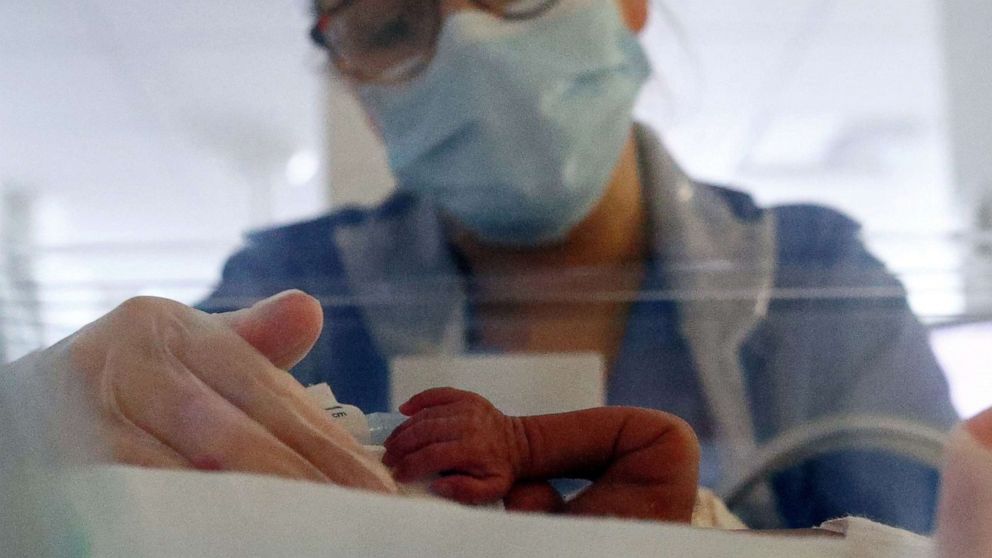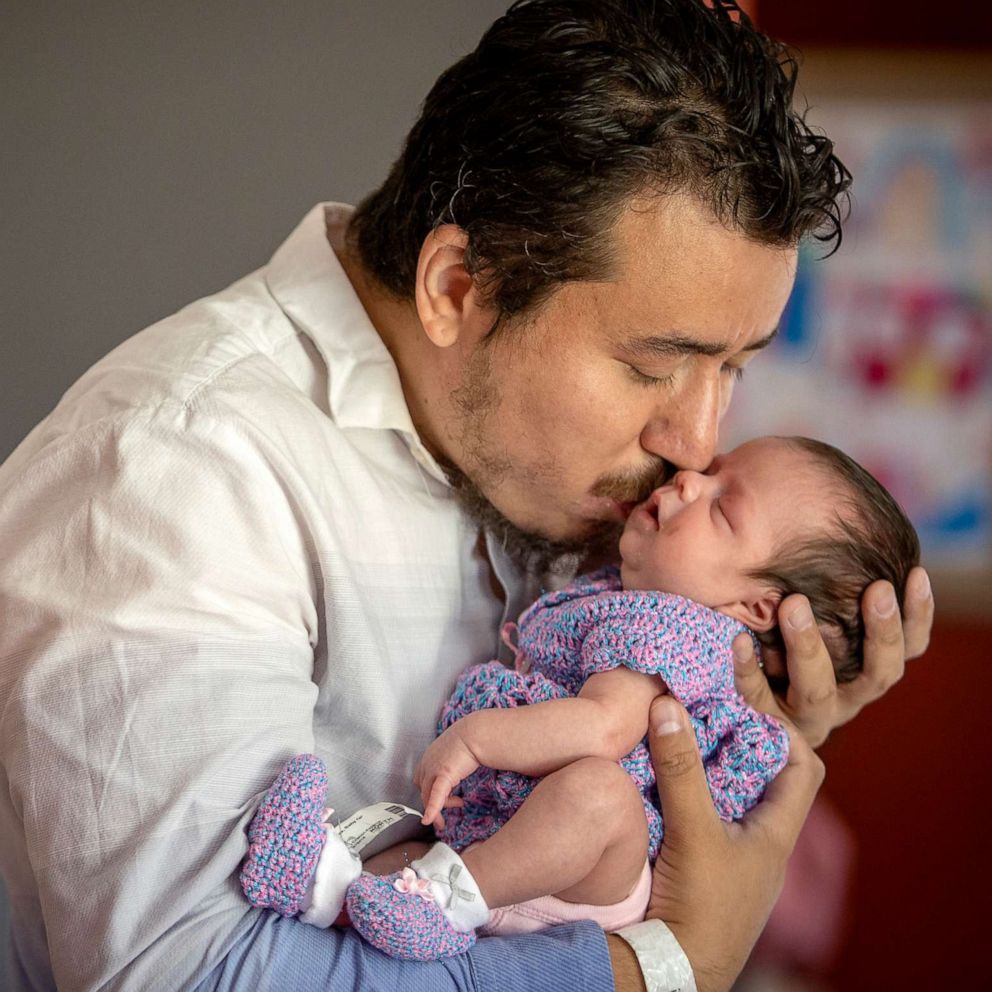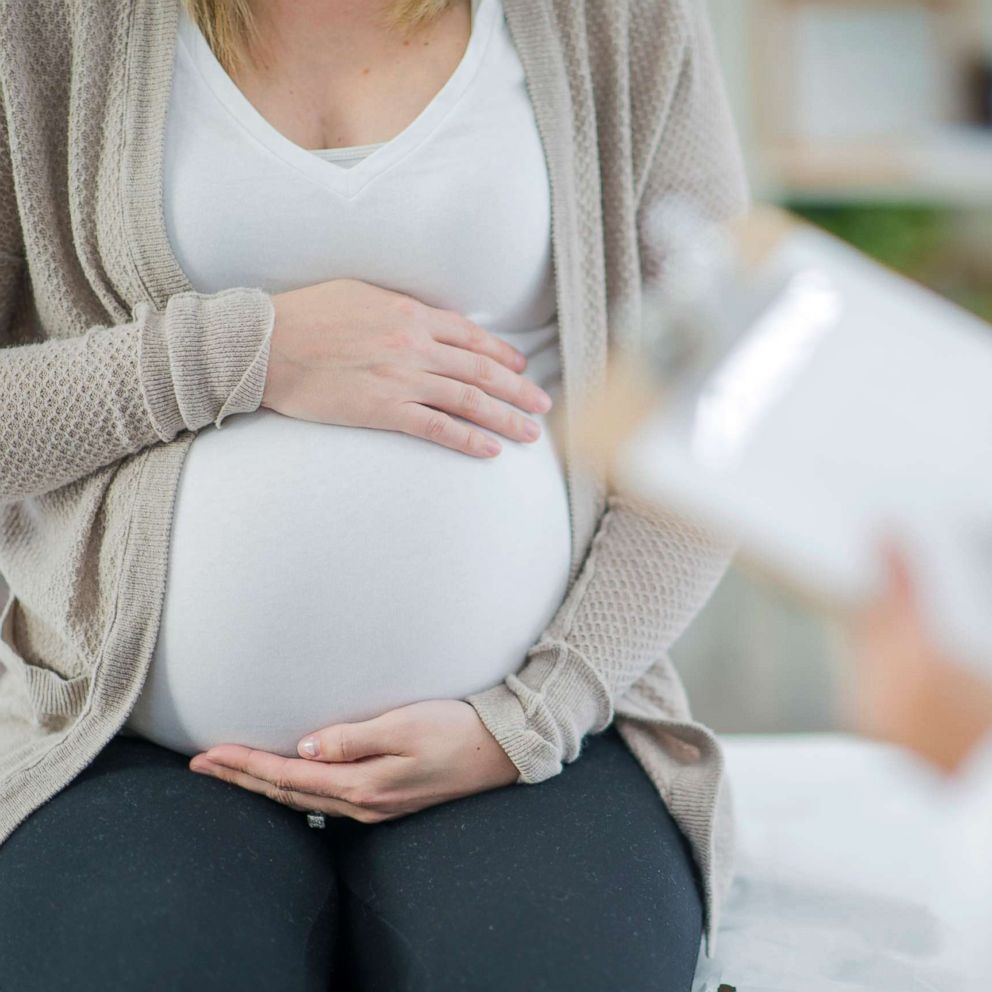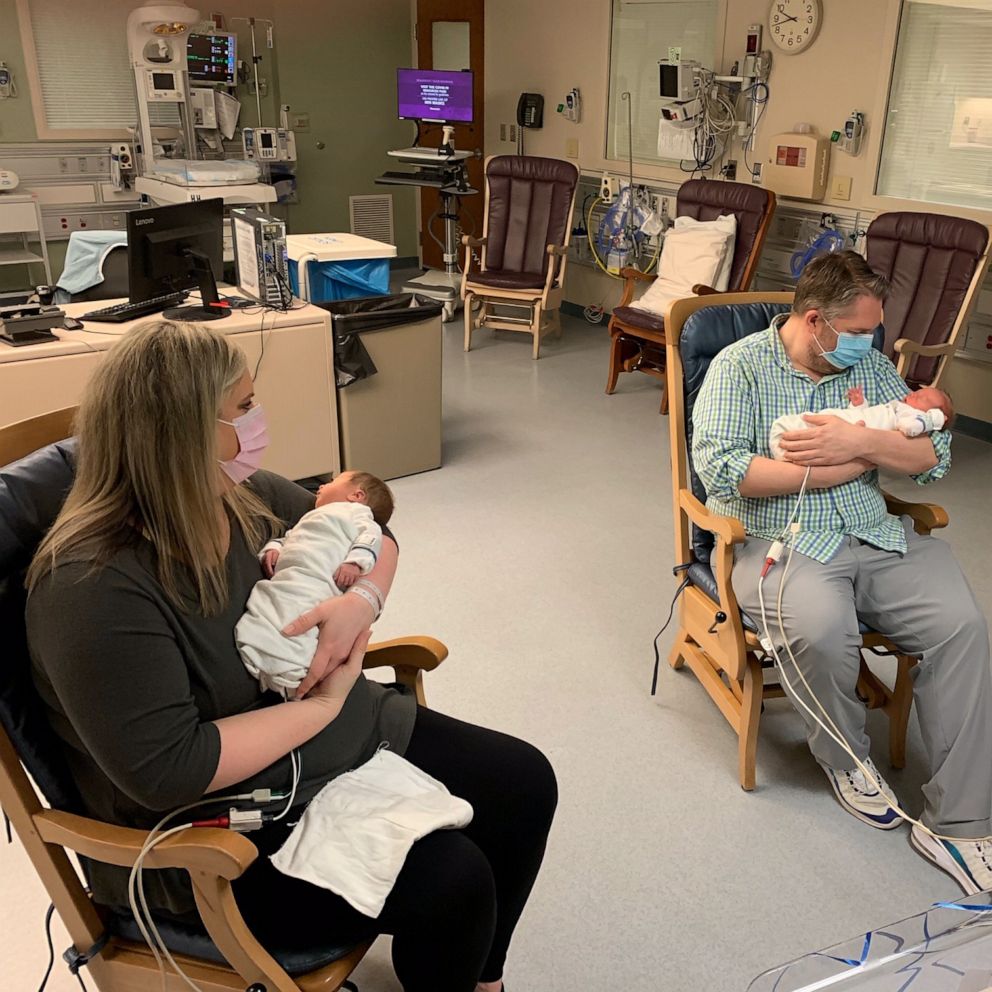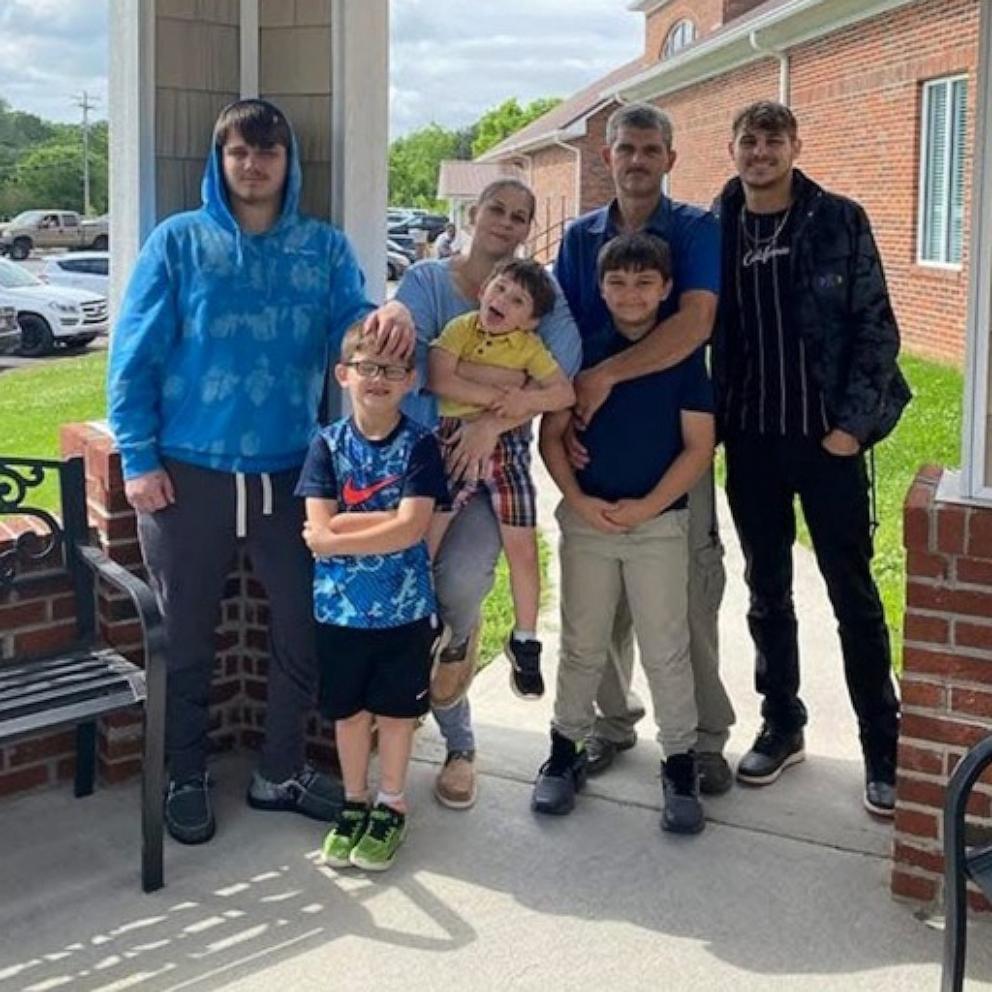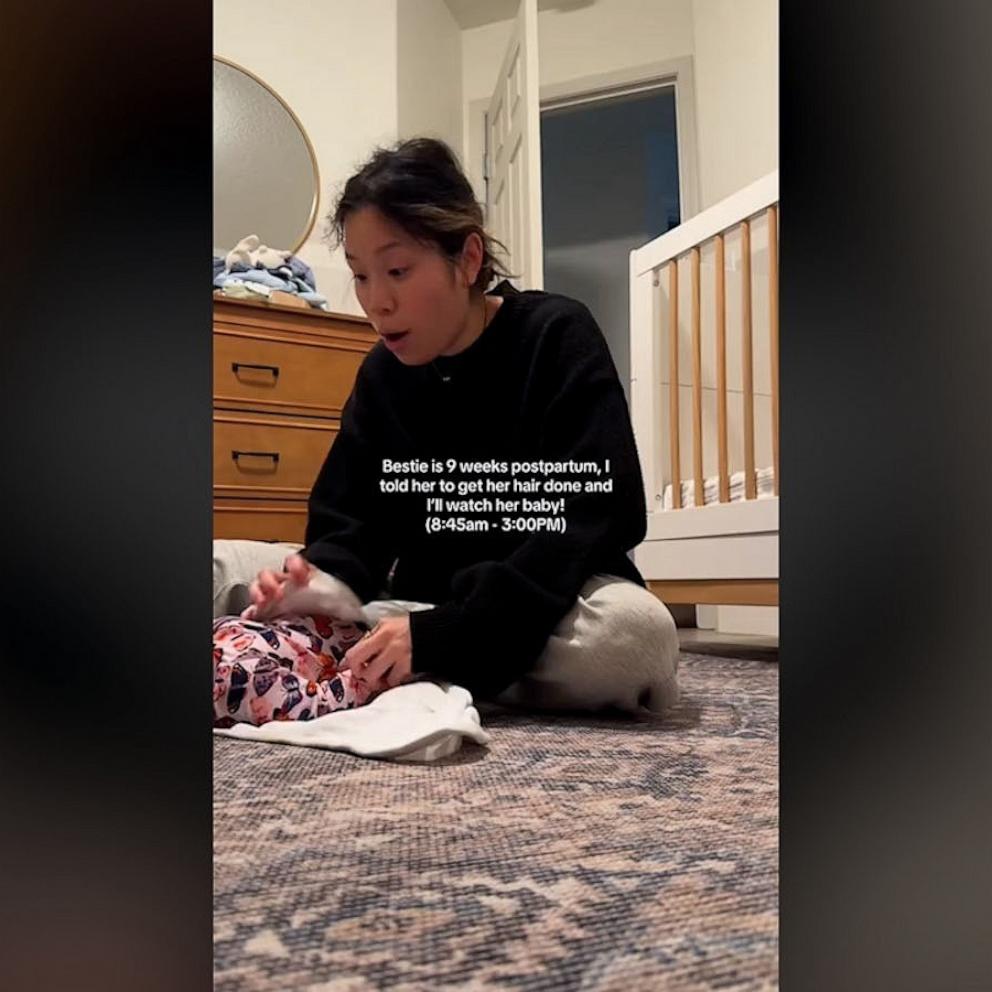How to keep your newborn baby healthy during COVID-19 pandemic
Caring for a newborn in the midst of a pandemic may seem daunting and complicated, but there's good news: The core advice hasn't changed. Experts still agree on child care basics like rooming in, breastfeeding and regular visits to the pediatrician -- just with a few new modifications to protect everyone against COVID-19.
Three doctors shared their best advice with "Good Morning America" in hopes of helping parents protect their newborns' health in the middle of a global pandemic.
1. Like always, bond with your baby from the beginning
Experts recommend parents and their new babies bond from the very beginning. This starts with mothers sharing a room with their baby while still in the hospital, a concept known as "rooming in." Even mothers who test positive for COVID-19 can sleep in the same room as their baby as long as proper safety precautions are taken, such as keeping 6 feet between the mother and baby, or placing the baby in an incubator, according to the Center for Disease Control and Prevention.
The benefits of skin-to-skin contact are well established after birth and when it comes to breastfeeding, doctors agree it's not only safe, but highly recommended. "At this point we don't have evidence that the virus passes through breast milk," said Dr. Julie Capiola, MD, FAAP, IBCLC, a New York pediatrician with Premier Pediatrics.
2. Breastfed infants are less likely to develop other viral infections
Breast milk contains many of the mother's infection-fighting antibodies, and while its effect on SARS-CoV-2 is not yet known, "breastfed infants are less likely to develop other viral infections," according to the American Academy of Pediatrics.
"It's one of the reasons breast milk is so good for your baby," explained Dr. Katherine Campbell, MD, MPH, an assistant professor of obstetrics, gynecology and reproductive sciences at Yale New Haven Hospital.
According to Campbell, mothers who test positive for COVID-19 should talk to their doctor and decide on the best approach for them. They can continue to breastfeed by making sure to keep their breasts clean and dry, washing their hands before handling the baby and wearing a mask during feeding sessions. Alternatively, they can express their milk and have a healthy caregiver bottle feed their baby after.
3. See the pediatrician regularly
Keeping newborns healthy also means continuing to see the pediatrician regularly.
Even if a new baby seems healthy, "it's not OK to skip well visits," cautioned Capiola.
These checkups are essential to ensure birth abnormalities -- such as permanent heart, lung and bone problems -- are not missed. They are an opportunity to identify hearing and language troubles early, when interventions can often minimize longterm damage.
Regular visits to the pediatrician are also important for ensuring the baby is up to date on routine vaccinations against diseases like pertussis, rotavirus and polio. The CDC recommends that infants 6 months or older get an annual flu shot. "Immunizations are particularly important this year," Dr. Susan Coffin, attending physician for the Division of Infectious Diseases at Children's Hospital of Philadelphia, said. "They can prevent several common 'lookalike' infections: infections that have symptoms similar to COVID and would trigger testing and worry."
4. Get a flu shot
Parents and other people that plan to be around the newborn should be vaccinated against the flu, and once the baby turns 6 months old, your pediatrician will likely suggest the same for your new baby.
Your newborn won't be offered a vaccine for COVID-19 though. Only one U.S. trial is currently enrolling teenagers; none are testing their vaccine on younger children. Approval for its use on infants is not likely to come soon.
5. Keep your bubble small
Part of keeping babies safe from COVID-19 is keeping them healthy and out of the hospital. "The strategies that prevent COVID transmission are also effective against other viruses," explained Coffin.
Infants can catch coronavirus the same way adults do: through droplets and aerosols in the air. When you're around a baby, "social distancing, hand washing and mask wearing really make a difference," Campbell said.
Restricting the number of visitors is also important. "Newborns have an immune system that is very limited in its ability to fight infection," said Capiola. Exposure to more individuals increases the infant's risk for infection. She recommends considering potential risks from those who want to meet the new baby. People who travel by air to visit, or those who go to a lot of restaurants, weddings and parties are likely to be at higher risk.
If you are going to socialize with people outside of your immediate family, consider doing so outdoors where transmission risk for COVID-19 is lower. Campbell suggests quick visits on a deck or a patio instead of socializing indoors whenever possible.
6. Don't panic if you get sick
But what should new moms do if they are worried they are getting sick themselves? As Capiola said: "Put on a mask, continue to care for the baby as needed and get tested."
